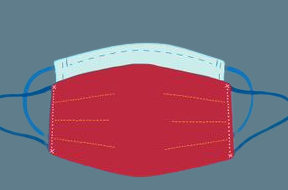Sleep Tips for Children and Teens During COVID-19
 What can you do as the parent of a child or a teen to support healthy sleep during this time, when families are home together and work/school routines are upended?
What can you do as the parent of a child or a teen to support healthy sleep during this time, when families are home together and work/school routines are upended?
Here’s a step-by-step plan for parents to make sure their children are getting enough sleep in the face of less-structured schedules.
Establish a Sleep Schedule
Except for very young children, discuss with your child or teen the importance of establishing a sleep schedule.
Determine Sleep Needs
When negotiating their sleep schedule, first figure out how much sleep your child or teen actually needs.
How much sleep your child/teen needs to function well should be based upon your observations of them and what they tell you rather than on national guidelines or others’ opinions.
Guidelines for sleep duration for different ages of children usually reflect what the “average” child or teen sleeps, but the range is large. Some children and teens need more sleep than this average, while others need less. Figure out, based on observing your child/teen and talking with them about how they are feeling, to come up with what works best for them.
If your child or teen wants to take naps during the day or falls asleep easily during down times (such as when watching a movie), nighttime sleep may not be adequate.
While generally naps are not encouraged when children are older (past preschool age), allow some flexibility for naps as long as the child’s nighttime behaviors are not disruptive to the household.
Natural Sleep Cycle
Next, take into account your child’s natural sleep cycle. There are larks (early-to-bed, early-to-rise) and there are owls (late-to-bed, late-to-rise), including teens who often have a later sleep cycle. So keeping a regular school schedule may not be recommended for every child or teen.
- For the “lark” – if your child or teen can easily fall asleep within 20 to 30 minutes and get enough sleep when waking up at a regular school time, then it might work well to keep the regular schedule.
- For the “owl” – many children function better if allowed to fall asleep when they are sleepy in the evening and wake up naturally in the morning.
- Most teens have a regular sleep cycle (or circadian rhythm) of 1 a.m. to 9 a.m., so a normal school day sleep schedule doesn’t fit with their natural biological rhythm.
The Importance of Keeping a Schedule
Finally, while there may be leeway for bedtimes and wake times, a regular schedule for sleeping is very important. A lot of research on sleep regularity shows that keeping a regular sleep cycle is best for children and adults.
Most important, consider keeping the wake time within a two-hour range or less regardless of the day of the week. This means that if your teen gets up at 9 a.m. during the week, it’s best to wake up by 11 a.m. (or earlier) on the weekends.
Recognize and Respect Differences
Most important, realize that all family members may have different natural sleep cycles and need for sleep. Now is the time for being considerate of others.
Excerpted from “Sleep Tips for Children and Teens During COVID-19” from University Hospitals. Read the full article online.
Source: University Hospitals | Sleep Tips for Children and Teens During COVID-19, https://www.uhhospitals.org/Healthy-at-UH/articles/2020/04/coronavirus-sleeping-tips-for-teens | Copyright © 2021 University Hospitals
If you have concerns about your child or teen, CHC Care Coordinators can arrange a free 30-minute consultation so you can explore options with an expert. We invite you to call or email us at 650.688.3625 or careteam@chconline.org to set up an initial Parent Consultation appointment. CHC teletherapy services are available now.





